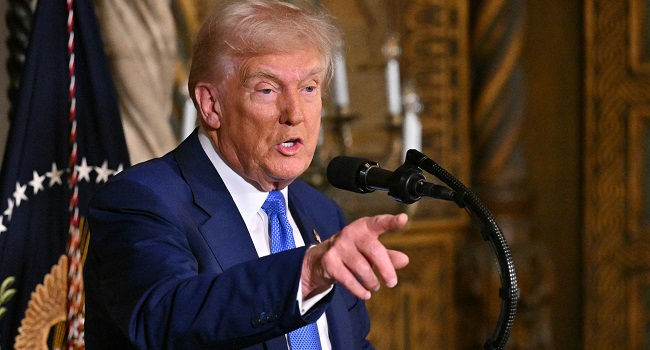President Donald Trump’s administration has announced plans to “aggressively” revoke visas for Chinese students in the United States, marking a new escalation in tensions between Washington and Beijing.
The declaration came from Secretary of State Marco Rubio on Wednesday, following backlash from China over the U.S. decision to suspend visa appointments for international students globally — a move criticized as politically motivated.
Rubio said the administration will target students with ties to the Chinese Communist Party or those studying in strategically sensitive fields.
“We will aggressively revoke visas for Chinese students, including those with connections to the Chinese Communist Party or studying in critical fields,” Rubio stated.
“We will also revise visa criteria to enhance scrutiny of all future applications from the People’s Republic of China and Hong Kong.”
Chinese students have historically formed a significant portion of the international student population in the U.S., contributing substantial revenue to American universities. According to data from the Institute of International Education, 277,398 Chinese students were enrolled during the 2023–2024 academic year. However, India recently surpassed China for the first time in total student numbers.
In his previous term, Trump also targeted Chinese students, particularly those involved in sensitive academic programs or with alleged military affiliations.
Escalating Diplomatic Tensions
China’s foreign ministry spokesperson Mao Ning responded to the latest visa crackdown, urging the U.S. to respect the rights of international students, including those from China.
Rubio’s recent moves include halting new student or exchange visa appointments until further guidance is issued. A diplomatic cable signed by him instructed U.S. embassies and consulates to pause all related appointments as screening procedures are reviewed, especially focusing on applicants’ social media activity.
These changes are expected to affect not only Chinese students but also applicants from U.S.-friendly countries. A Taiwanese PhD student, preparing for studies in California, expressed uncertainty:
“I understand the process may be delayed, but there’s still time before the semester begins in mid-August. All I can do now is wait and hope,” said the student, who requested anonymity.
Harvard Under Fire
Tensions have also flared between Trump and Harvard University. The administration has accused the university of harboring liberal ideology and failing to combat anti-Semitism. Harvard recently rejected demands for greater federal oversight over admissions and hiring practices.
A judge has temporarily halted a Trump order that sought to bar foreign students from the institution, pending a hearing coinciding with Harvard’s graduation ceremonies.
Meanwhile, the White House has stripped Harvard and several other elite universities of federal research funding.
“The president wants taxpayer dollars going to trade schools and state institutions that promote American values and teach skills needed for our economy,” White House Press Secretary Karoline Leavitt said on Fox News.
Some Harvard students have voiced concern that U.S. universities may become less attractive to international scholars.
“I’m not sure I’d commit to a PhD here now. Six years is a big investment,” said Jack, a graduating British student studying the history of medicine.
Harvard has filed multiple legal challenges against the administration’s policies.

